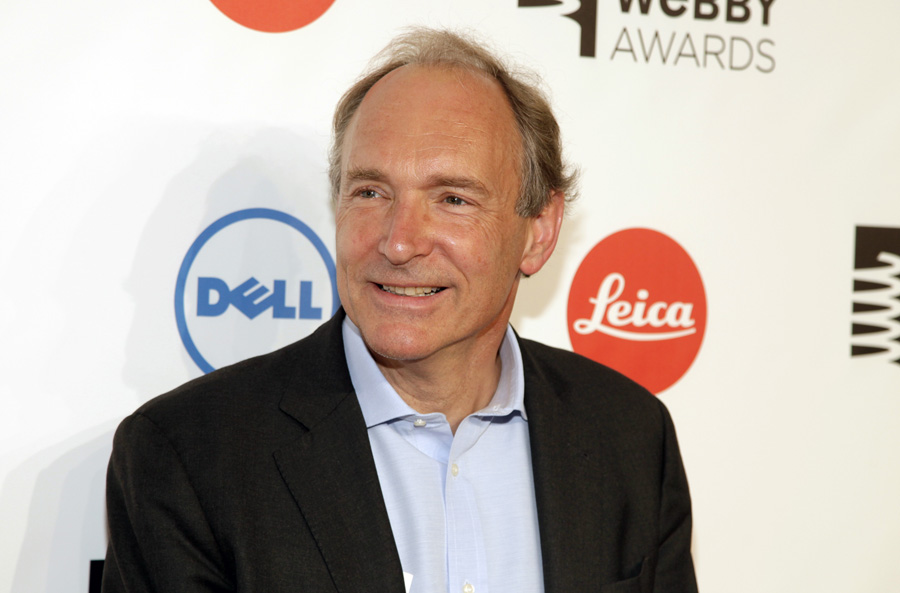Internet inventor in web warning
By Julian Shea in London | China Daily | Updated: 2018-03-13 09:36

The man who invented the World Wide Web, Sir Tim Berners-Lee, has warned that the increasing concentration of online power among the major tech companies risks turning the system into a weapon rather than something of public benefit.
He also called for a stronger regulatory framework to ensure a balance can be struck between social objectives and profit-making.
In an annual open letter published on his World Wide Web Foundation to mark the start the system on March 12, 1989, the 62-year-old, who was knighted by the Queen in 2004 for services to the global development of the internet, said the priority should be everyone having access to the web and ensuring that it worked for all - not just those in positions of power.
"The fact that power is concentrated among so few companies has made it possible to weaponize the web at scale," Berners-Lee wrote.
"In recent years, we've seen conspiracy theories trend on social media platforms, fake Twitter and Facebook accounts stoke social tensions, external actors interfere in elections and criminals steal troves of personal data."
Berners-Lee acknowledged that the major companies were taking steps to solve the problem but said that ultimately their motivation as private enterprises was financial gain, rather than social good.
Each year on the anniversary of its foundation, he publishes a letter through the Web Foundation, discussing challenges and issues around the system.
This year's message focuses on ways to improve the web and ensure there is not a gap between those who have access to it and those who do not.
"To be offline today is to be excluded from opportunities to learn and earn, to access valuable services and to participate in democratic debate. If we do not invest seriously in closing this gap, the last billion will not be connected until 2042," he said.
Berners-Lee said the promotion of systems such as public Wi-Fi would open up greater access, and he also noted how women and girls could be empowered through greater skills and training access.
Despite highlighting some of the challenges ahead, Berners-Lee's annual statement ended on an optimistic note, with a rallying call to the "brightest minds" to come together to make the web work for everyone.
"Let's assemble the brightest minds from business, technology, government, civil society, the arts and academia to tackle the threats to the web's future," he wrote.
























